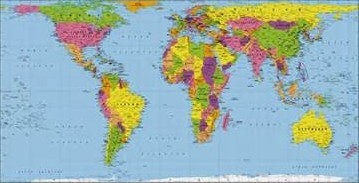Does God Need Us?
QUOFLECTIONS™
ON SPIRITUALITY AND ETHICS
“Unlike merely human love,
divine love gives
and doesn’t receive.”
Miroslav Volf
God is all-knowing, all-powerful and unchanging. With this static view of God, how could God possibly need us?
As a 30-year-old seminarian, I excitedly concluded God does need us. Surely God is diminished if those he creates and loves no longer exist. As divinely beckoned members of God’s family, God rejoices with our rejoicing and suffers with our sufferings. Isn’t it obvious? Yes, God needs us.
An extraordinary book challenges this concept. The author of Free of Charge: Giving and Forgiving in a Culture Stripped of Grace reflects personally and deeply on God’s generosity and our response.
I am immediately drawn to Volf’s contrast between human and divine gifts. Our love is distorted and selective, choosing the objects of our love. “A man may shower a woman with gifts, but he may be doing it so that he can ingratiate himself to her, enjoy her, keep her,” Volf writes. “When we love in this way, we are receivers, not givers.”
By contrast, God’s love is global, irrespective of a person’s character or deeds. “Divine love,” says Volf, “doesn’t depend on the truth, beauty or goodness of the beloved.” God loves the unlovable. As Martin Luther affirmed, God’s love is bestowed on “sinners, evil persons, fools, and weaklings in order to make them righteous, good, wise, and strong.”
Moreover, God gives us “absolutely everything.” Volf challenges our cherished assumptions: We are dependent on God, not independent; we take pride in our achievements rather than acknowledge God’s empowerment; and we claim to earn all we “own” rather than praise God for these gifts.
“In these ways,” the Yale theologian continues, “we, decent citizens, live as inveterate sinners.” We betray the divine. Nevertheless, God’s love continuously flows toward us.
Faith recognizes our dependence on God’s giving, yet our dependence does not diminish us. Indeed, Volf prompts us to celebrate our status as God’s empowered creatures and realize that faith “frees us to our greatest accomplishments.”
Does God need us? Volf says ‘no.’ We may allow God’s gifts to flow through us to others, we may respond with gratitude and praise, we may increasingly emulate the divine love. In all this, Volf reasons, “we cannot return benefits to God for the simple reason that everything we return to God was God’s to begin with.” Like a flowing stream, says Volf, God’s giving is “unidirectional.”
What do you think? Does God receive from us? Does God need us?
I agree with Dr. Rowan Williams, the Archbishop of Canterbury, that Volf “offers us a unique interweaving of intense reflection, vivid and painfully personal stories, and sheer celebration of the giving God.” Free of charge is written in down-to-earth language which welcomes everyone. Volf has indeed allowed God’s gifts to flow through him to us!
Still, I differ with Volf’s conclusion that God receives nothing from us. Instead, consider a theologian whose work awakens a more intimate understanding of God. “If God is love,” Jurgen Moltmann asserts, “he also expects and needs love.”
In his rigorous book, Trinity and the Kingdom, Moltmann describes the personal interrelationships of Father, Son and Holy Spirit as the social model for human love. I appreciate most his expression of the dynamic relationship of God with humanity: “Just as God [gives] the world its own impress, so the world puts its impress on God too.”
The world’s impress upon God inflicted horrendous suffering when the nails of the cross were driven through Jesus’ flesh. Amazingly, God transforms this obscenity into yet another occasion for redemptive love to flow toward us: As Paul audaciously announces, “while we were enemies, we were reconciled to God through the death of his Son” (Romans 5:10).
God loves us with unimaginable intensity. God is transformed by love. Yes, God needs us!
May our impress upon God reflect faith, gratitude and the wonder of allowing God’s magnanimous gifts of love to flow through us to others—and back to God.
©2006 Harry Rix. All rights reserved.
Related articles
Glimpsing the Creator
How Do We Pursue Peace?
What Wouldn’t Jesus Do?
Transforming Our Way of Thinking
Where are You, God?
Perceiving Good Amidst Evil Fosters Hope

